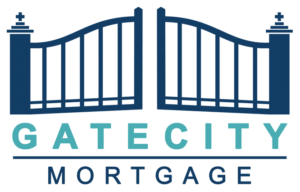Loan Programs
Which Mortgage is Right for You?
There are several different types of home loans available to you, and it can pay to familiarize yourself with them. Luckily we’re here to help you choose the best type of home loan for your needs.
Fixed-Rate Mortgages
A fixed-rate mortgage is a popular loan type where monthly principal and interest payments remain constant throughout the loan’s term, typically ranging from 10 to 30 years. These loans can be paid off early without penalties. Payments are stable, although they may vary slightly if an impound account is used to cover property taxes and insurance. This type of mortgage ensures predictability and financial stability, making it an attractive option for many homebuyers.
Adjustable Rate Mortgages
Adjustable Rate Mortgages (ARMs) have interest rates that can change during the loan term, starting with a fixed rate for an initial period. ARMs offer lower initial rates compared to fixed-rate mortgages, making it easier to afford a more expensive home. Typically amortized over 30 years, ARMs combine a margin and an index to determine interest rates. These rates adjust annually, but caps limit the amount of adjustment, providing some protection against drastic hikes. Understanding how ARMs work can help you decide if they suit your financial situation.
Interest-Only Mortgages
Interest-only mortgages allow borrowers to pay only the interest for a set period, resulting in lower initial payments. These loans can be beneficial for those with fluctuating incomes or needing short-term savings, but they come with higher long-term costs and the risk of increased payments after the interest-only period.
Graduated Payment Mortgages
Graduated Payment Mortgages (GPMs) offer a unique loan structure where payments start low and increase annually for a set period, typically 5 to 10 years, before stabilizing for the remaining term. This setup helps borrowers qualify for loans despite high interest rates by initially lowering payments. However, the risk includes negative amortization, where unpaid interest is added to the loan principal, increasing the overall balance. Understanding GPMs, planning for increased payments, and ensuring income growth can help manage these mortgages effectively.
FHA Loans
FHA home loans, backed by the Federal Housing Administration, offer a path to homeownership for those who might not meet conventional mortgage criteria. These loans are available for single-family and multifamily homes, providing low down payments, reasonable credit requirements, and flexible income guidelines. Ideal for first-time buyers, FHA loans make buying a home more accessible by reducing the risk for lenders.
VA Home Loans
VA (Veteran’s Administration) Home Loans offer veterans the opportunity to secure federally guaranteed home loans with no down payment, lower interest rates, reduced closing costs, and no prepayment penalties. Established in 1944 through the GI Bill, these loans are available nationwide and can be reused under certain conditions. Eligibility extends to veterans who served during specific wartime or peacetime periods, as well as certain spouses. VA loans can be used to purchase various types of homes, including single-family homes, townhouses, and new constructions. While there are some disadvantages, such as longer processing times and seller hesitance, the benefits often outweigh these drawbacks for eligible veterans.
USDA Loans
USDA loans offer low-interest, zero down payment mortgages designed for low-income Americans who may not qualify for traditional loans. These loans require the property to be in designated rural or suburban areas, making homeownership accessible and affordable for those who meet specific income and credit requirements.
Jumbo Loans
Jumbo loans are designed for financing properties that exceed the conforming loan limits set by the Federal Housing Finance Agency (FHFA), which is $548,250 in most counties. These non-conforming conventional mortgages are considered riskier for lenders because they cannot be guaranteed by Fannie Mae or Freddie Mac. Jumbo loans offer flexible terms, including fixed and adjustable rates, but come with stricter qualification requirements such as higher credit scores and larger down payments. While they allow for higher borrowing limits, they may also have slightly higher interest rates.








